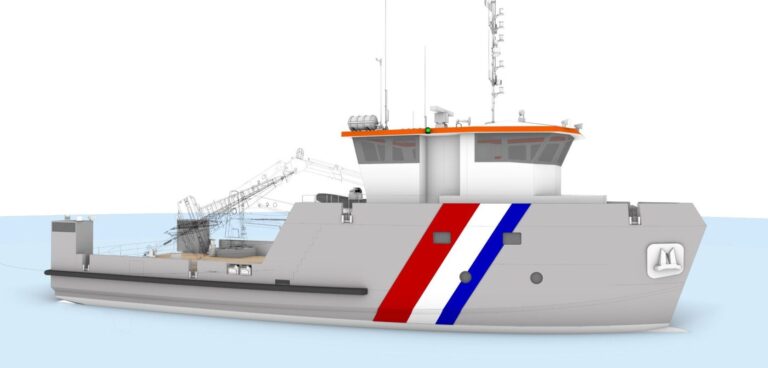A hybrid-electric buoy-laying vessel being built for the Armement des Phares et Balises – the French government’s department responsible for signaling dangers and marking shipping routes along the country’s coast – is to be equipped with two Danfoss electric motors.
For the project, ECCS Marine will be responsible for the design and integration of the electrical systems, while Danfoss Power Solutions’ Editron division is to equip the vessel with two electric motors, powered by 150kWh batteries to enable occasional fully electric operation. Alongside the pair of electric motors, two Volvo D16 IMO Tier 3 engines will be installed, both with particle filters and variable-pitch propellers. Additionally, if more power is required on board, these batteries can be utilized to boost the vessel’s hotel load. Solar panels will also be installed onto the ship to further reduce its environmental footprint.
In 2019, the French Inter-Ministerial Committee for the Sea committed to decarbonizing the country’s marine industry and aims to do so through the decarbonization of vessel propulsion and onboard systems. The electric buoy-laying vessel is estimated to provide fuel savings of 25% to 30% compared to traditional diesel-propelled vessels, contributing to the sustainability targets.
The vessel will be used to maintain and replace navigational buoys around the island of Corsica and is currently being built at the Merré and CIB shipyards in Nort-Sur-Erdre and Brest, France, with a delivery date set for mid-2023.
“Our Editron system is designed for any type of marine vessel, since its benefits – such as lower fuel consumption, reduced emissions, freedom of design and easy integration – are universal,” commented Erno Tenhunen, Danfoss’s Editron division’s marine director. “It is especially ideal for a work boat like this, as the tough requirements for reduced space and weight are no issue for the market-leading power density of our parallel hybrid propulsion system.”
“The buoy-laying vessel will be regularly entering and leaving ports and sailing across Corsica maritime protected areas, so it was important that greenhouse gas emissions and noise pollution were kept to a minimum – something the Editron division was able to ensure with their propulsion system,” said Peter Enjalbert, project engineer at ECCS. “This project has demonstrated that a totally electrified marine industry is within reach, so we hope this electric vessel will be the first of many for this fleet.”



